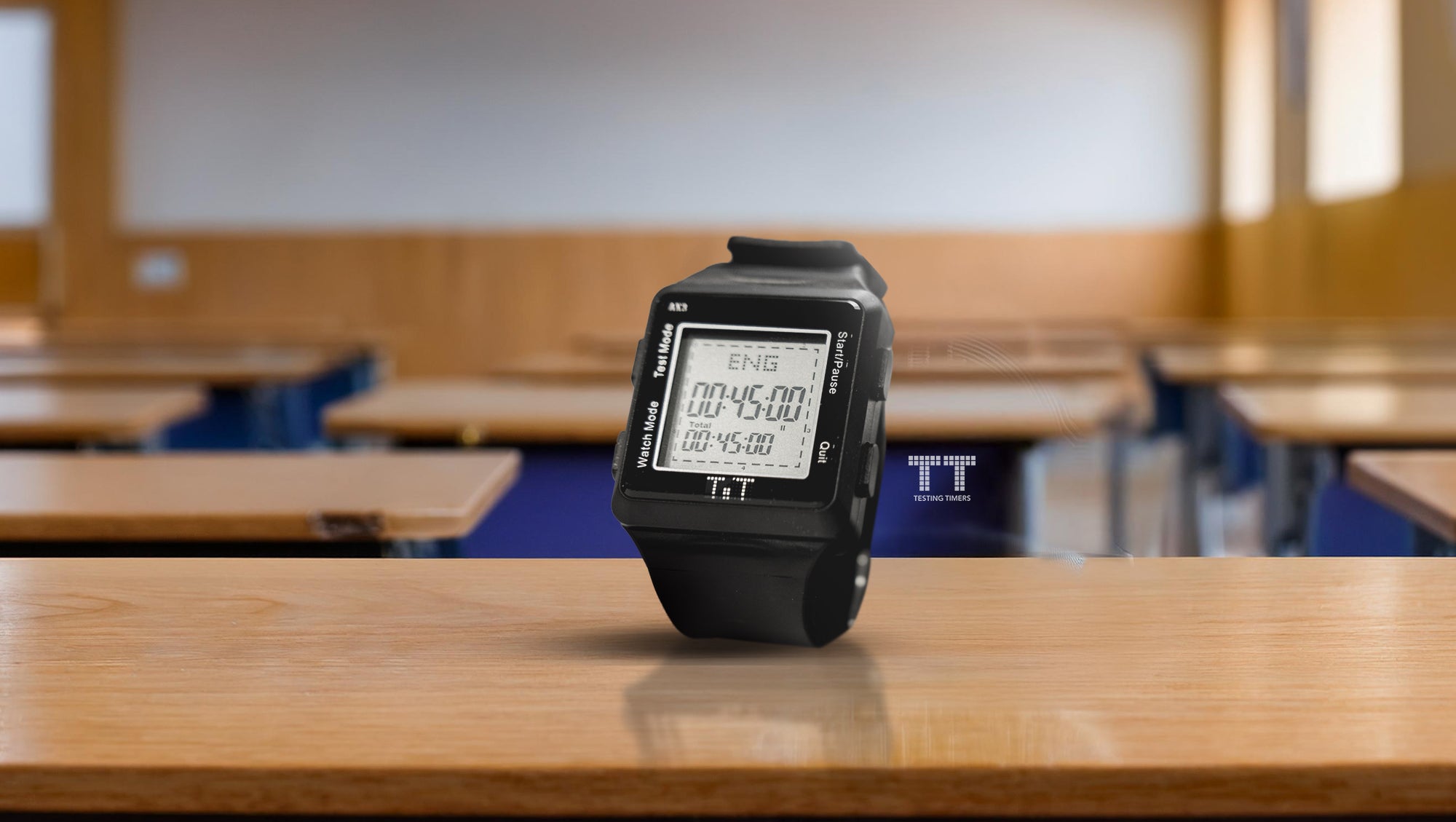Just one step more before you enter college – The ACT. This standardized test is not just about understanding the material. It’s about your pacing.
Since the timeframe for each section has already been given, it’s time to process loads of information and respond accurately ASAP!
You can pass the ACT quickly and precisely with the right tools and materials.
Here’s a look at seven time-saving tools and some techniques to help you master the ACT.
1. High-Quality Timer or Watch
Every second counts on the ACT. Invest in a dedicated timer or watch to make you aware of the time. We suggest trying Testing Timers. It’s a game changer that keeps you on track and maximizes efficiency.
While many testing centers provide wall clocks, having your timer can be a game-changer. Look for a timer or watch that is:
- Manually programmed
- Easy to read at a glance
- Allowed by ACT guidelines
2. Effective Practice Tests
Being familiar with something, and getting used to it, gives you confidence and allows speed.
Taking realistic, up-to-date practice tests under timed conditions can significantly reduce anxiety and improve your pacing. While numerous resources offer ACT practice tests, ensure they:
- Mirror the format of the actual ACT
- Include answer explanations for post-test review
- Are updated according to the latest ACT changes
3. Speed Reading Techniques
The reading section can be particularly time-sensitive. Speed reading, however, is not just about reading faster—it's about understanding while maintaining speed. Techniques include:
- Skim the passage for structure and main ideas.
- Read groups of words together rather than one word at a time.
- Minimize silently pronouncing each word in your head.
4. Formula Cheat Sheets
While the ACT does not provide a formula sheet, you can benefit from creating your own for study purposes.
Focus on formulas you struggle to remember or ones that are frequently tested. Review this sheet daily; soon, you won't even need it.
5. Quick-Reference Grammar Guide
The ACT English section tests a specific set of grammar rules. To master this section:
- Create a condensed list of essential grammar rules.
- Note common pitfalls and mistakes.
- Practice with targeted grammar exercises to reinforce these rules.
6. Efficient Calculator with Stored Functions
Your calculator can be your best friend during the math section. Not all calculators are created equal, so ensure you have the following:
- A calculator that's allowed by ACT guidelines.
- Knowledge of how to store and use functions efficiently.
- Practice using your calculator during mock tests to mimic actual test conditions.
7. Flashcards for Vocabulary and Concepts
Spaced repetition is a study technique that maintains what you’ve memorized even after the ACT. We suggest creating flashcards for the following:
- Essential vocabulary words
- Scientific concepts
- Historical dates or events for the reading section
In addition, using apps like Anki or Quizlet can allow you to study on the go and track your progress.
Test Day Strategies
With your toolkit ready, seamlessly integrating these tools on test day is essential. Always:
- Scan questions first, answering easier ones and marking harder ones for a revisit.
- Manage stress with deep breathing and maintain a positive attitude.
Wrap-Up
The ACT is not just about what you know—it's about how efficiently you can show what you know. By equipping yourself with these seven time-saving tools and materials, you're preparing to answer questions accurately and do so with time to spare.





